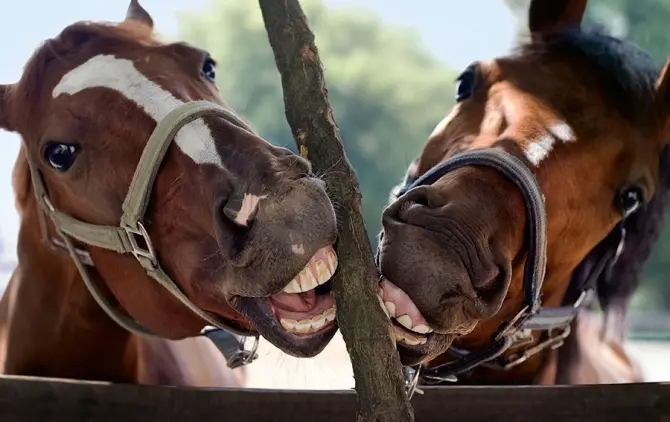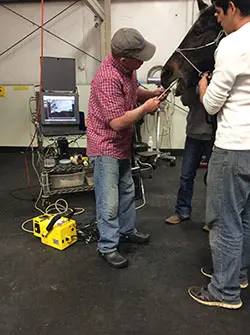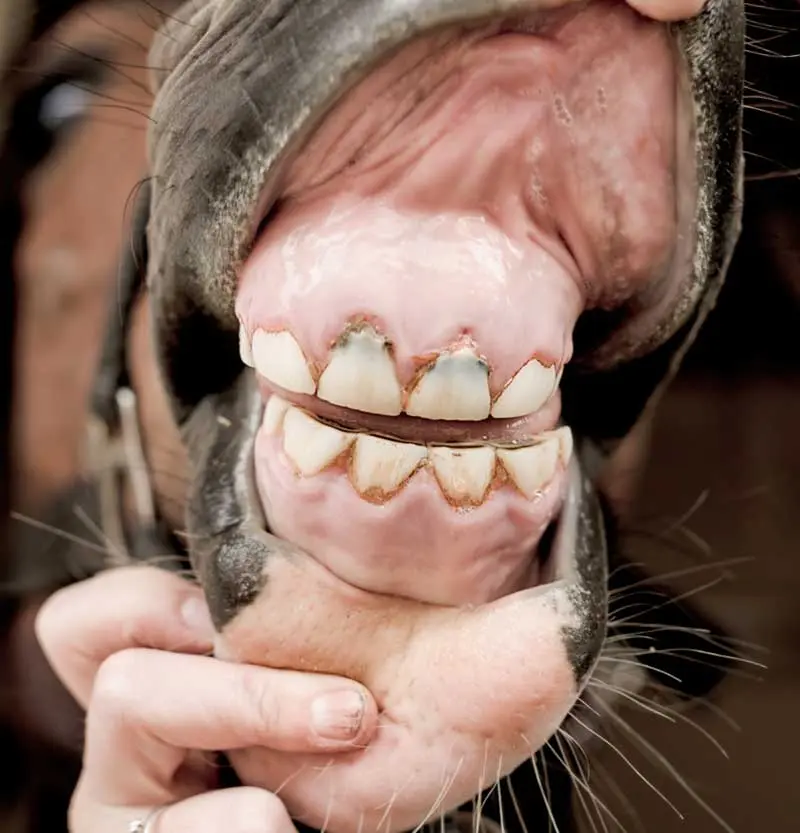Service
Dentistry
At Ford Veterinary Surgery Center we are committed to providing our clients with a high-quality equine dental technician service, and to abide by the American Veterinary Medical Association performance guidelines.
Call For An Appointment
Have A Question?

About
Routine Dentistry
We believe that good sedation, combined with a clean mouth and proper instruments are key elements of a good thorough dental. A good thorough dental exam should be done at least once a year for most adult horses. In some horses, we recommend dental work to be done every six months. Our routine services include:
Oral Exam
Routine Dentistry is not just removing sharp points from your horse’s teeth anymore. FVSC believes that an essential part of dentistry is a thorough oral exam. We believe that it is important to look for any possible problems in your horse’s mouth.
Such as soft tissue injury or ulceration, or retained deciduous (baby) teeth to fractured teeth, and decay. Any pathologies or problems that may be found during an oral exam will be noted and addressed with the owner.
Floating/Equilibration
During the exam, we also carefully evaluate points, which horses normally get, and excessive points which may be present in order to determine how to effectively float and balance each individual horse’s mouth. The equipment that we use in each horse’s mouth is designed to be safe and effective.
Periodontal Therapies
Horses can get periodontal disease (gum disease). This may occur for various reasons. Equine teeth are unique in that they continuously erupt into the mouth. For this reason, equine teeth rarely build up enough plaque or calculus to cause periodontal issues.
However, most cases of periodontal problems in the equine mouth are due to food packing in areas between or among the teeth where it begins to decompose. This process is the primary event that triggers periodontal disease in the horse.
Periodontal disease is something that we look for and monitor during an oral exam. In cases where treatment is needed, we are capable of providing therapies to slow or stop the progression of this painful condition. If left untreated, periodontal disease can cause tooth loss.
Types Of Oral Surgery
Basic Extractions
Examples of basic extractions include wolf tooth removal or retained cap (deciduous or baby tooth) removal.
Sinus Surgery
With some severe dental problems, the sinus may also be involved. When this occurs we may need to evaluate the sinus using diagnostic tools, such as radiographs and endoscopy, to determine what action must be taken. When the sinus is affected it is commonly secondary to an infected tooth. However, there are other possible causes for a sinus infection. Therefore, endoscopy is necessary to evaluate such conditions.
Advanced Extractions
A horse may need a tooth extracted for many reasons. Teeth may need to be removed due to severe decay, advanced periodontal disease, or they may have broken in a way in which they cannot be repaired.
WARNING SIGNS
Most horses will experience some form of dental problems during their lives. Unfortunately, many horses show no outward signs of pain or discomfort so it is often not until a dental examination that these problems are identified and can be treated.
For this reason, it is vital to have your horse examined every 6-12 months by a FVSC technician who will be able to recommend an appropriate treatment plan and advise accordingly.
Could your Horse have a Dental Problem?
- Quidding (balling up partially chewed hay and spitting it out)
- Dropping hard feed or dribbling while eating
- Unsteadiness in the rein contact, stiffness to one side, rearing
- Head shyness / shaking
- Foul breath
- Dunking hay in the water
- Slow eater
- Packing grass or hay into the cheeks
- Loss of Condition
Give FVSC a call at 559.298.3331 to arrange an appointment.


